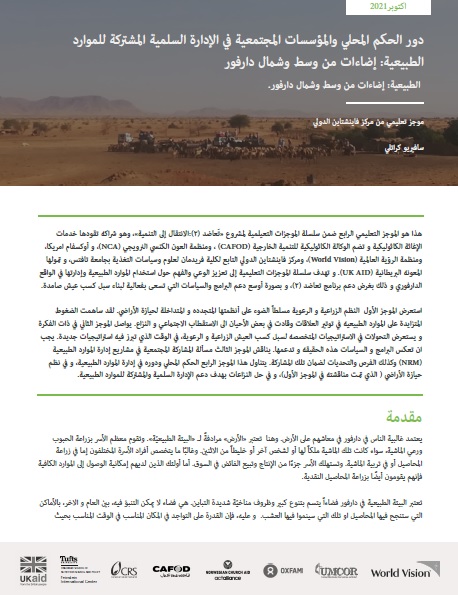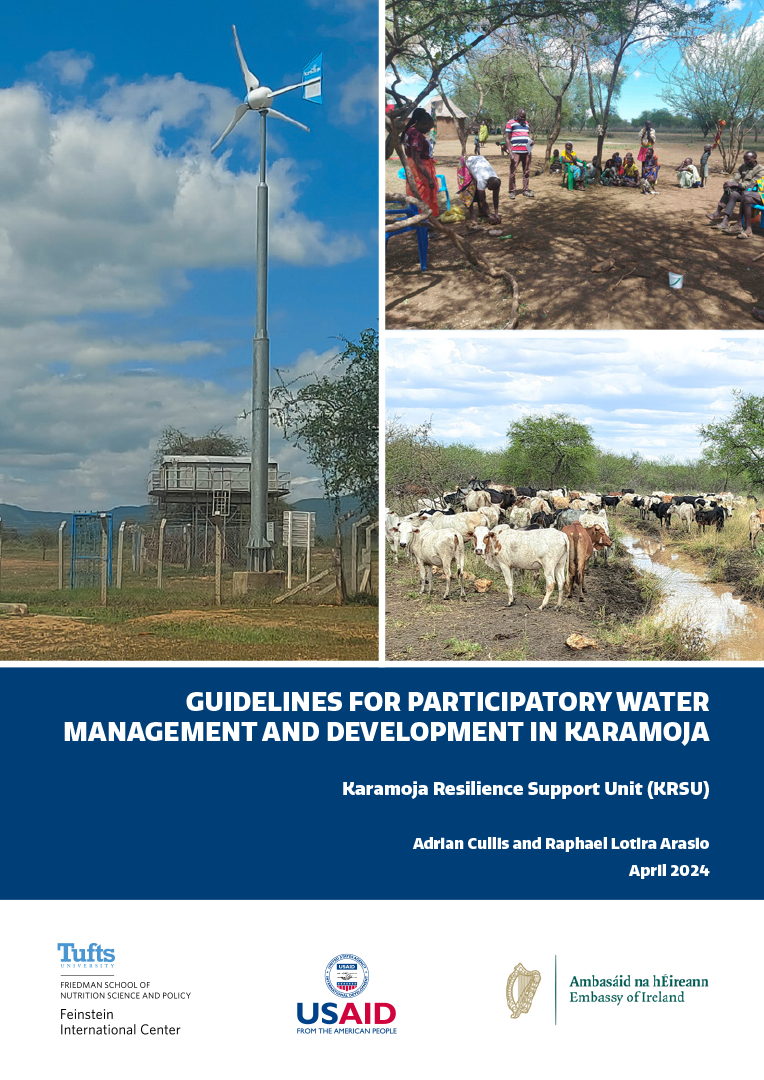This brief is in Arabic. It is also available in English.
The majority of people in Darfur live off the land, growing cereals and keeping livestock. The natural environment so critical for people’s livelihoods is a space of great diversity and highly variable conditions—where it is not possible to predict from one year to the next where crops will mature or grass will grow. Therefore, people’s capacity to be in the right place at the right time and take advance of short-lived pockets of opportunities makes all the difference.
However, people’s relationships with their environment are inevitably mediated by society. Inasmuch as livelihood is concerned, what matters is not the natural environment as such—the annual rainfall and its distribution, the rate of evapotranspiration, or the degree of biodiversity—but how these phenomena are experienced through the mediation of social institutions. People’s relationships with the “natural environment” are first and foremost relationships with other people.
This brief explores the idea that social relationships dictate people’s experience of the natural environment on which their livelihoods depend, to discuss the issue of peaceful natural resource management in Darfur.
The study highlights that:
- The ways different groups of users experience their shared space as a ‘resource’ has been transformed and disrupted, with new exclusionary claims by both farmers and pastoralists.
- INRM programming must understand the ways people relate to natural spaces to secure their livelihoods when managing natural resources.
- The more different uses that can be peacefully staked onto the same spaces, the higher the economic value that can be sustainably created.
- NRM interventions need to include the bigger picture (space and time) and assume pastoralism to always be a part of it.
This brief builds on two 2020 studies carried out by the Universities of Al Fashir (North Darfur) and Zalingei (Central Darfur), focusing respectively on community-based natural resource management (CBNRM) committees, and on local governance and the Native Administration.
It is the fourth (and final) learning brief in a series under the Taadoud II: Transition to Development project, a collaboration led by Catholic Relief Services and funded by UK Aid. The learning brief series aims to promote awareness and understanding of natural resource use and management in Darfur to support the Taadoud II program and wider programs and policies to effectively build resilient livelihoods.







